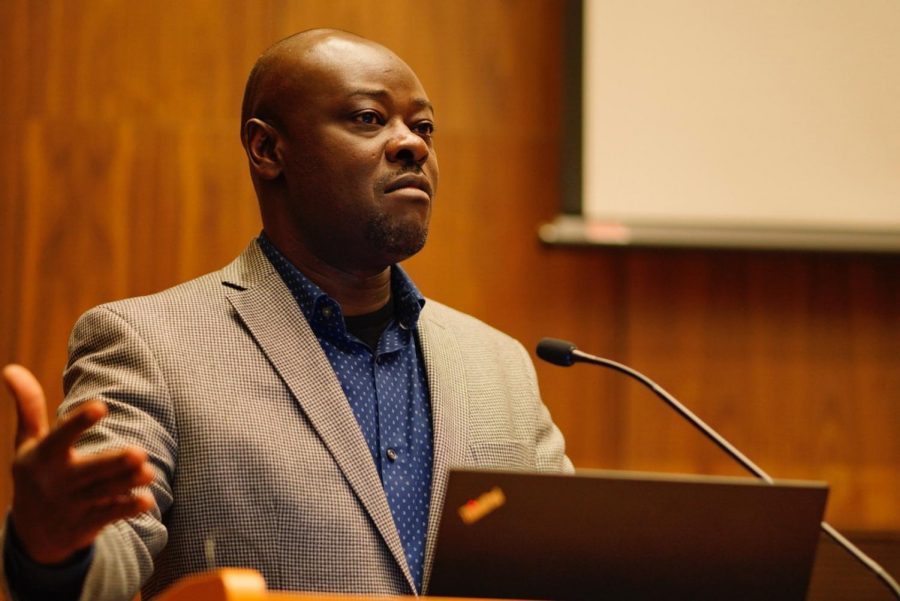Religion, politics, and the literary landscape in contemporary Nigeria
Professor Helon Habila speaking in the Jean Student Center Complex Auditorium.
November 4, 2018
Students from all backgrounds of the study came to see Nigerian journalist and novelist Helon Habila speak about the current condition of politics, religion, and literature in Nigeria.
Seats filled up quickly in the Jean Student Center auditorium the night of Oct 17.
Helon Habila is a journalist, author, and a professor at George Mason University who grew up in Kaltungo, Nigeria.
He has won numerous awards for his fiction and poems, such as the Caine Prize for African Writing and the Commonwealth Writers Prize.
He published a novel called Oil on Water in 2010 and The Chibok Girls: The Boko Haram Kidnappings and Islamist Militancy in Nigeria in 2016 through Columbia Global Reports.
In the book, Habila visited Chibok personally to gather first-hand accounts of the night of the kidnapping.
Saint Anselm’s own Professor Michael New, of the English department, opened the night and expressed his gratitude towards all who helped bring the event together, and brought in Megan Miller.
Miller, a senior Peace and Justice studies and Spanish double major, then continued with a thorough introduction to Habila before he began his lecture.
A lot of times, people will put a general label on something that doesn’t always grasp the diverse aspects of the subject in question.
In this case, African literature is not something that can be confined to one singular idea or execution. Miller spoke greatly about this in her introduction.
Reading literature from diverse origins can expand one’s knowledge about different societies, and quoting Habila himself, “The best stories are the ones we write with tears in our eyes.”
Habila opened up the lecture with background information on Nigerian politics and the terrorist group Boko Haram, also explaining the kidnapping of the 276 girls who were taken in Chibok by the group in 2014.
The result, he said, is the closing of schools around Nigeria.
Approximately 1 million children are not in school at this time since the Nigerian government declared a state of emergency.
A lot of the student absences may be attributed to the destruction of schools around the state in an attempt to scare people out of sending their children there.
The destruction of these schools only makes the conditions worse in Nigeria.
One of Boko Haram’s main ideologies stems from the hatred of Western education, and the lack of attendance at schools shows their small successes at creating a sense of fear within students.
Students from many different majors attended Habila’s lecture, such as Communications, English, Politics, and Theology. Saint Anselm students from all educational backgrounds were able to appreciate the content.
For those individuals who wished to see the lecture but could not attend, it is currently up on YouTube on the Saint Anselm NHIOP channel.
When it was time for a Q&A, Habila left everyone all with a question to think about: “What tools can literature offer to us to have us view the problems of the world? That will be up to us to answer.”



